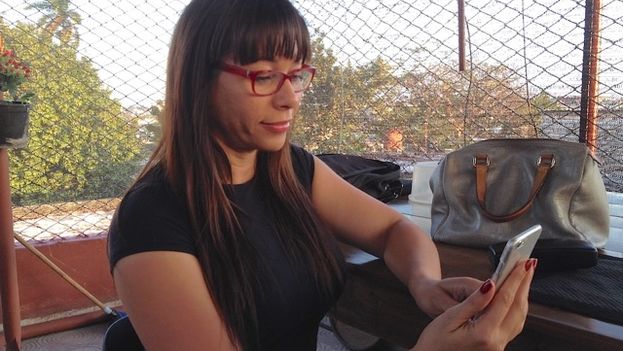
![]() 14ymedio, Luz Escobar, Havana, 2 November 2016 — “I swore I would never set foot in this country,” recalls Lazaro, age 48 and from Camaguey, who emigrated in the late nineties to Miami. However, a few months ago he changed his mind and began the legal process to return to Cuba. “The land pulls me,” he says with a smile while showing off his brand new identity card.
14ymedio, Luz Escobar, Havana, 2 November 2016 — “I swore I would never set foot in this country,” recalls Lazaro, age 48 and from Camaguey, who emigrated in the late nineties to Miami. However, a few months ago he changed his mind and began the legal process to return to Cuba. “The land pulls me,” he says with a smile while showing off his brand new identity card.
At the end of 2012, the average number of emigrants who chose repatriation that year barely reached 1,000. However, after the immigration and travel reforms put in place by Raul Castro’s government in January of 2013 – including the elimination of the often-denied permit needed to travel outside the country –the number has skyrocketed.
During a radio interview, the Cuban ambassador in Washington, Jose Ramon Cabañas, said that as of the beginning of 2015 until today, some 13,000 Cubans resident in the United States have returned to the island. This phenomenon is repeated among émigrés in Europe and Latin America.
The reasons for return range from buying a home, to coming and spending one’s old age with one’s family. Returnees also recover their right to an allocation of goods on the rationed market, and the right to vote, which Cubans living abroad cannot do.
The common denominator among the returnees is that most opt for repatriation only after acquiring a foreign nationality. “It’s not the same to return as a sato Cuban,” a phrase that roughly translates as a ‘garden variety’ Cuban, “as to return with a yuma passport,” i.e. a foreign one, “in your pocket,” explains Lazaro, who has had US citizenship for a decade.
Although Cuban authorities do not recognize dual nationality, having a foreign passport streamlines paperwork, facilitates traveling from the island, and can open many doors in the convoluted management of daily life.
In the case of Lazarus, the motivation to return goes beyond nostalgia. “I want to buy an apartment and if I’m not a resident of Cuba I can’t do that,” he says. The law governing the sale of property only recognizes this right for citizens who are permanent residents of the country.
Since getting his identity documents, Lazaro has spent a few weeks in his native land. “Right now I don’t want to live in Cuba,” he explains, and adds, “What I’m doing is an investment for the future, for when ‘the thing’ changes and it really makes sense to return.
“I have a retired friend who has done all the paperwork to repatriate because he has a pension that is very low for Miami, but here he can live like a king,” he adds. Among the reasons that motivated the pensioner, says Lazaro, is to find “a younger woman, because he feels very lonely over there.”
The ability to inherit property, open a private business or to get free medical care are also among the incentives for return.
Returnees also enjoy the prerogative of one-time opportunity to import a large volume of belongings. For the General Customs of the Republic, Yipsi Hernandez says, moving a “household has no weight limit” and is “tax-free.” The official confirms that you can import “two of every kind” of appliance.
Iliana Hernandez just repatriated from Spain. Her process lasted five months and to start it was only necessary to go to a notary with the person she planned to live with, her mother, who took responsibility for her return to the country.
“With this letter from the notary and a stamp costing 100 convertible pesos you have to go immigration,” she explains. “After filling out some forms, the authorities send you a notice to collect your ID card, which takes an average of six months.”
The reason for Hernandez’s return focuses more on social activism. “I want to fight to bring a quality of life here that is the same as abroad,” she says. Recently, the athlete, who left Cuba legally after a failed attempt to swim to the US military base at Guantanamo, has created Lente Cubano, an audiovisual project that brings together news and views on various topics.
She says she does not feel regret for having returned. “Sometimes when I am riding on a bus, I miss my little car. It is hard here,” she says, because “your quality of life is completely lost.”
